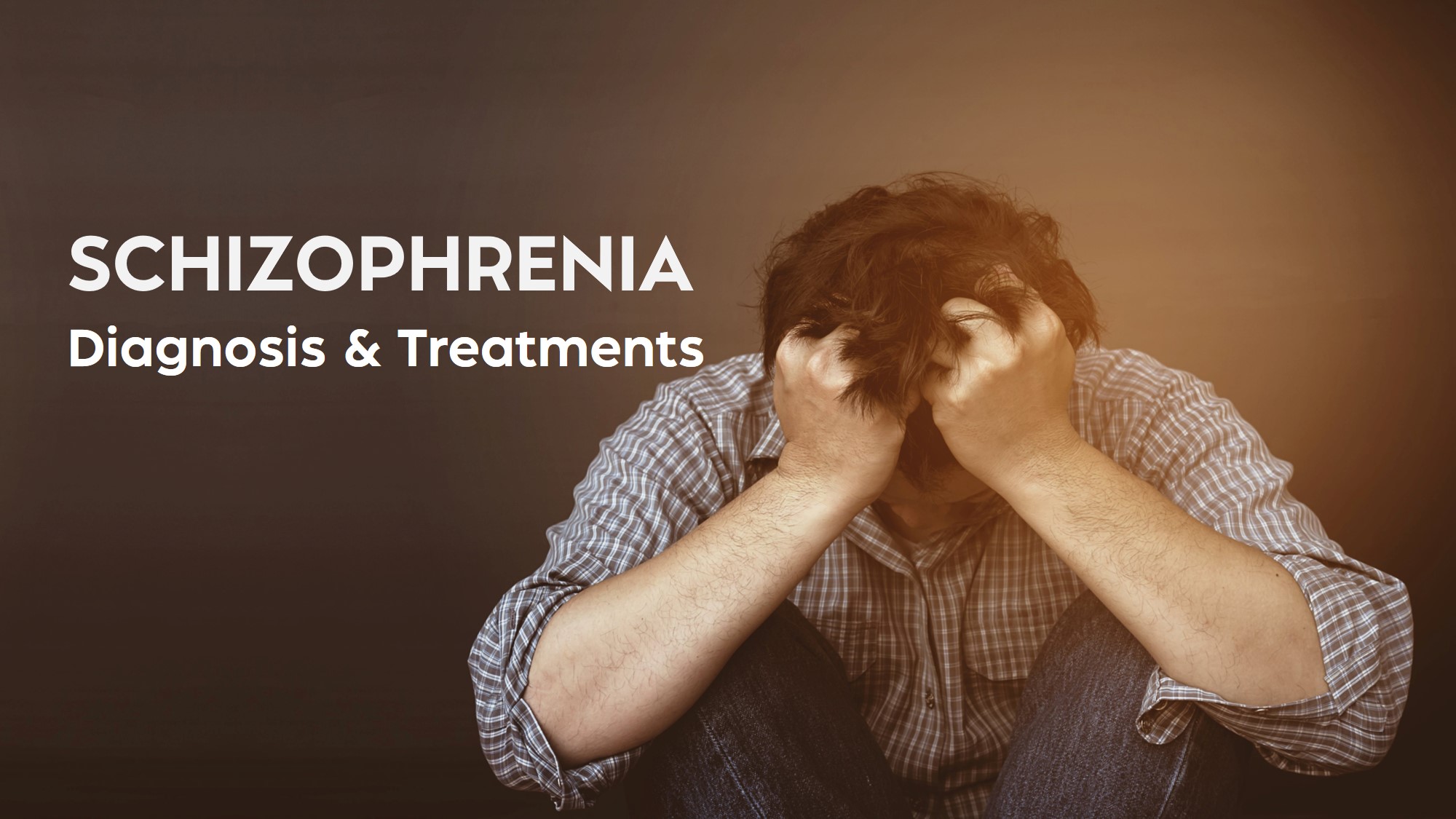Schizophrenia | Overview, Diagnosis & Treatments

This is one of the most common illnesses in Psychiatry. It is a part of the psychotic spectrum of illnesses which means that the patient is not aware that he has some disorder. Such patients might present with violence or irritability and excessive suspicions. They require immediate attention. The illness can present at a very early age like 20 years or as late as even 50 years.
Understanding the Schizophrenia Symptoms
- Positive symptoms – also known as psychotic symptoms. For example, delusions and hallucinations.
- Negative symptoms – these refer to elements that are taken away from the individual. For example, absence of facial expressions or lack of motivation.
- Cognitive symptoms – these affect the person’s thought processes. They may be positive or negative symptoms, for example, poor concentration is a negative symptom.
- Emotional symptoms – these are usually negative symptoms, such as blunted emotions.
Below is a list of the major symptoms
- Delusions – the patient displays false beliefs and might not believe even when contrary proof is given. The false beliefs might include people plotting against them, trying to kill them, talk of high matter, people talking about them etc.
- Hallucinations – hearing voices is much more common than seeing, feeling, tasting, or smelling things which are not there, however, people with schizophrenia may experience a wide range of hallucinations.
- Thought disorder – the person may jump from one subject to another for no logical reason. The speaker may be hard to follow or erratic.
- Irritability – Patient might resort to violence and get angry on trivial matters.
- Restlessness – Patient keeps moving or wandering around aimlessly. They might even leave the house without informing.
- Poor self-care – The patient might not feel like taking a bath or brushing or wearing clean clothes. They have to be motivated to do the same.
Other symptoms may include
- Lack of motivation (avolition) – the patient loses their drive. Everyday actions, such as washing and cooking, are neglected.
- Poor expression of emotions – responses to happy or sad occasions may be lacking, or inappropriate.
- Social withdrawal – when a patient with schizophrenia withdraws socially, it is often because they believe somebody is going to harm them.
- Unawareness of illness – as the hallucinations and delusions seem so real for patients, many of them may not believe they are ill. They may refuse to take medication for fear of side effects, or for fear that the medication may be poison, for example.
- Cognitive difficulties – the patient’s ability to concentrate, recall things, plan ahead, and to organize their life are affected. Communication becomes more difficult.
Diagnosis & Treatment of Schizophrenia
DIAGNOSIS– It is diagnosed based on the symptoms and assessment scales. Diagnosis of schizophrenia involves ruling out other mental health disorders and determining that symptoms are not due to substance abuse, medication or a medical condition. Determining a diagnosis of schizophrenia may include: Physical exam, Tests and screenings & Psychiatric evaluation.
TREATMENTS – Schizophrenia requires lifelong treatment, even when symptoms have subsided. A psychiatrist experienced in treating schizophrenia usually guides treatment. Below are some treatment options:
- Medication– it includes anti-psychotic drugs along with supportive medicines and nutrition.
- ECT – electro-convulsive therapy- It is the gold standard in treatment of schizophrenia.
- rTMS – It works very well in negative symptoms.

